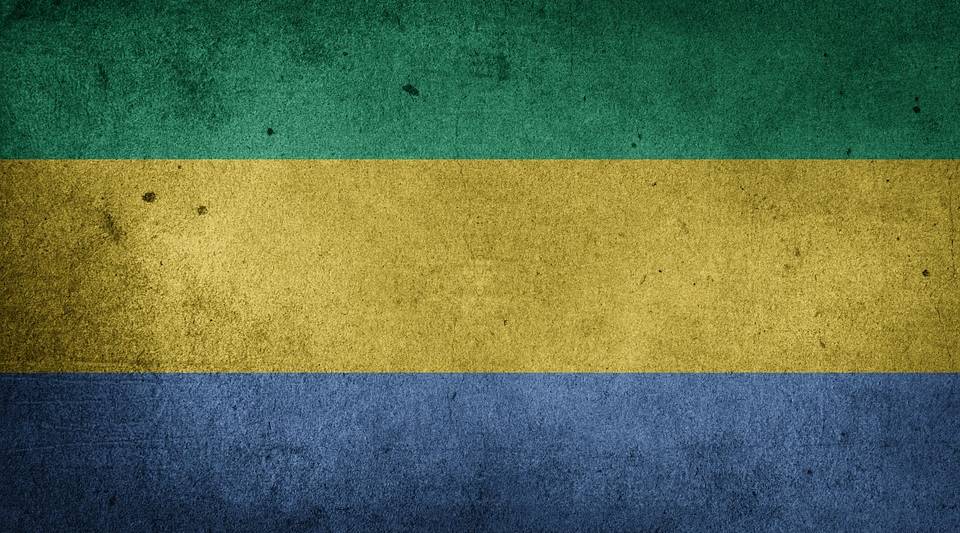
Gabon
Capital city — Libreville
Country population
Incarceration rate (per 100,000 inhabit…
Type of government
Human Development Index
i2016/ UNDPName of authority in charge of the pris…
Total number of prisoners
Average length of imprisonment (in mont…
An NPM has been established
Female prisoners
Incarcerated minors
Percentage of untried prisoners
Death penalty is abolished
Yessince 2010 Gabon…
Specific population
The prison population is made up of 3,373 prisoners, of which 2,250 have been charged and 1,123 convicted. The population of Libreville prison varies between 1,500 and 2,000 prisoners. The prison was only built to accommodate 300 prisoners. As a result of the overpopulation, there is no separation between minors and adults, or pre-trial and convicted prisoners.
Overpopulation is the direct result of an inefficient legal system. Time limits for provisional detention are not respected and hearings are regularly deferred. All hearings at the Crown Court between 2014-15 were cancelled due to lack of funding, leaving numerous cases where legal time limits for criminal procedures had expired, and impacting prisoners at Lambaréné prison.
Files also disappear as a result of badly managed filing systems, particularly in Libreville prison. Officials in charge of records are given neither sufficient means nor appropriate training.
A prisoner, M.W.N., held for four years and eligible for release in April, was still in detention in October 2015. The clerk of the court’s office had not advised the prison authorities of the release decision. The Public Prosecutor’s Office is not bound by any legal time limit for writing appeal reports, thus prisoners are often held beyond expiry of limits.
Gabon has 191 prisoners for every 100,000 inhabitants, higher than the African average. According to the Institute for Research into Criminal Policy (ICPS) lower rates (62 for Senegal, 49 for Liberia, 31 for Nigeria and 53 for the Ivory Coast) are seen in countries that favour traditional justice.
Women
According to the ICPS there were approximately 118 women prisoners in 2015. Nine prisons have women-only wings. The prison officers are, for the most part, women. Access by men to these women-only areas is not effectively regulated.
The specific hygiene or medical needs of women are not catered for. There are no gynaecologists on prison medical teams.
The penal code makes no provision for alternative punishments for mothers of young children. Pregnant women stay in prison until the day they go into labour, at which point they are transferred to a hospital. After delivery, these women return to prison with their babies. There is no nursery for young children. The law does not state a maximum age for the child’s stay in prison with its mother. Family members are able to take these children into their care.
Female prisoners
3.5 %
Juveniles
There are 98 minors held in Libreville prison according to 2014 ICPS records. There are no prisons exclusively for minors, although sections are reserved at Libreville, Port-Gentil, Franceville and Lambaréné. Even in these prisons where a wing is reserved for minors, they regularly mix with adults. Minors in Mouila prison are held with adults. Violent and sometimes sexual assaults have been reported.
Minors can be imprisoned from the age of 13 and there is no specific or appropriate treatment available. The prison administration stating that there is not enough funding for this. The number of judges for minors is insufficient and there are few alternative punishments to prison.
The NGO, Arc-en-ciel, in partnership with the Sylvia Bongo Ondimba Foundation for the Family, organises educational programmes for minors at the prisons in Libreville and Tchibanga. These organisations also arrange psychological follow-up sessions at Libreville.
In Gabon, some minors held in prison are abandoned by their families. When freed from prison they find themselves on the streets or in some cases taken into care by the NGO Arc-en-ciel.
Juvenile prisoners
2.9 %
Foreigners are held in the same areas and under the same conditions as nationals. Being in the country illegally is grounds for imprisonment.
Foreigners arrested in Gabon are also victims of court delays. Two Malian nationals arrested in May 2014 for being in the country illegally were each sentenced to one month in prison. They remain in prison at the time of writing, due to the sentencing report not being typed up by the prosecutor.
People cannot be convicted on the basis of sexual orientation and sexual identity. LGBT people are occasionally arrested based on their sexual orientation and then set free.
LGBT prisoners suffer poor treatment at the hands of their co-prisoners and are sometimes forced to provide sexual services in return for food, a space to sleep, or protection.
Officially, there are no political prisoners registered.
Elderly people do not have specific conditions of imprisonment nor are they eligible for early release.
There are no prisons exclusively for people with mental health problems. Courts do not always follow up requests for psychiatric expertise. Lost files can hold up access to medical care and appropriate treatment. Other prisoners assist sick or handicapped prisoners.
U.M., a citizen of the Democratic Republic of Congo, has been held in Franceville since 2007. In 2015, the NGO La voix des oubliés (The Voice of the Forgotten), a charitable association set up to defend the rights of prisoners in Gabon, held an investigation to try and locate his file which had been lost for several years. The investigation uncovered an interim order dating from June 2010, ordering a psychiatric evaluation of the prisoner. This person was released in October 2015 and repatriated to his country of origin without having received any medical care.